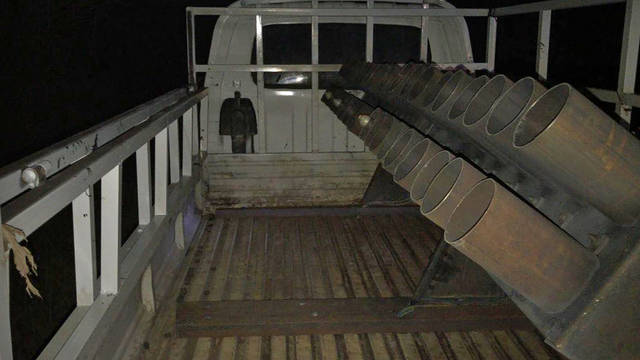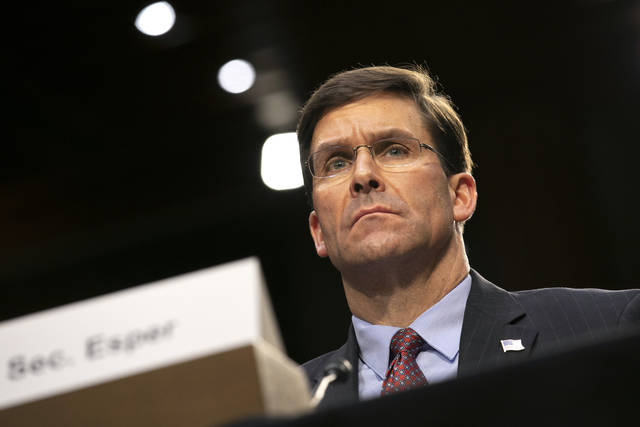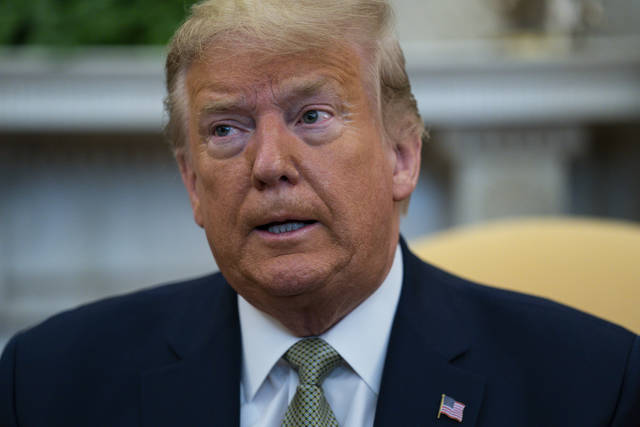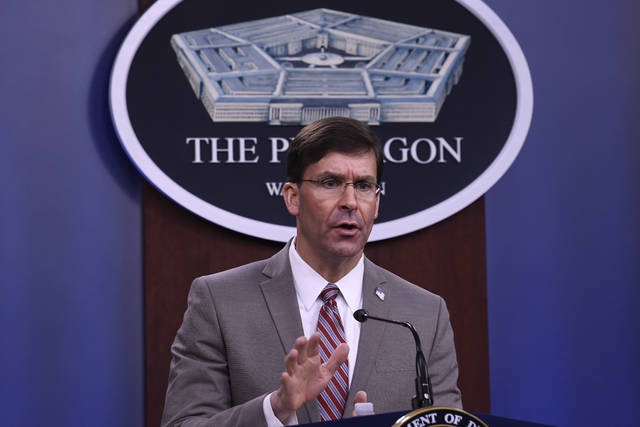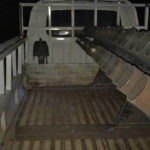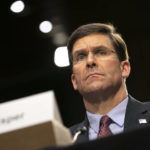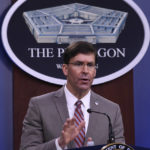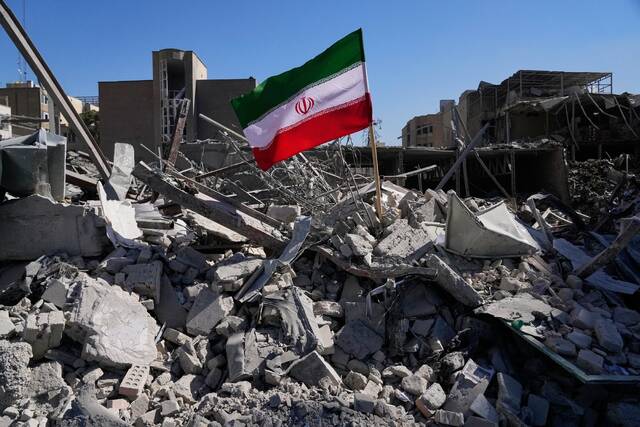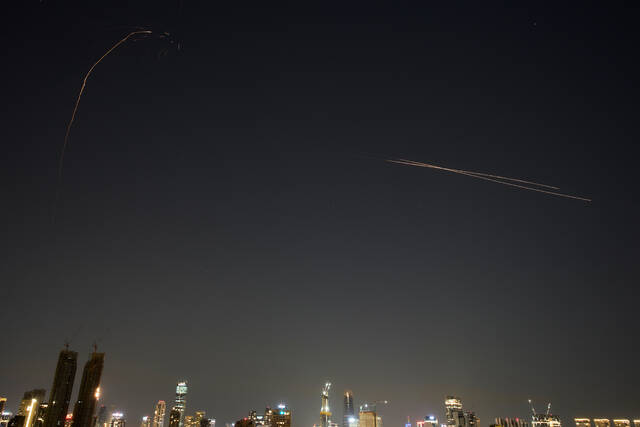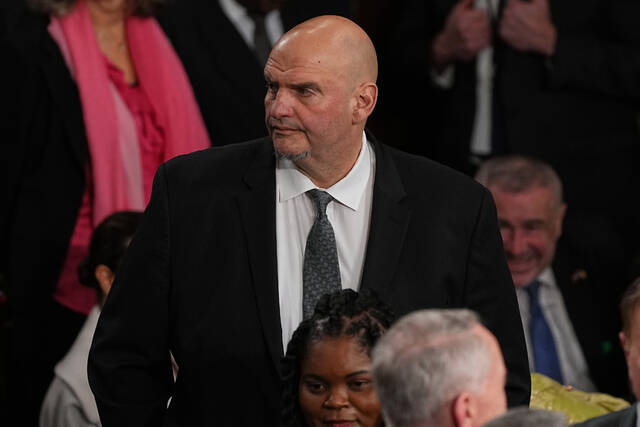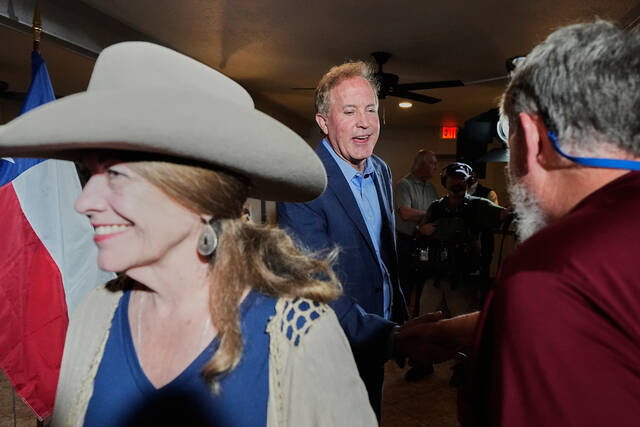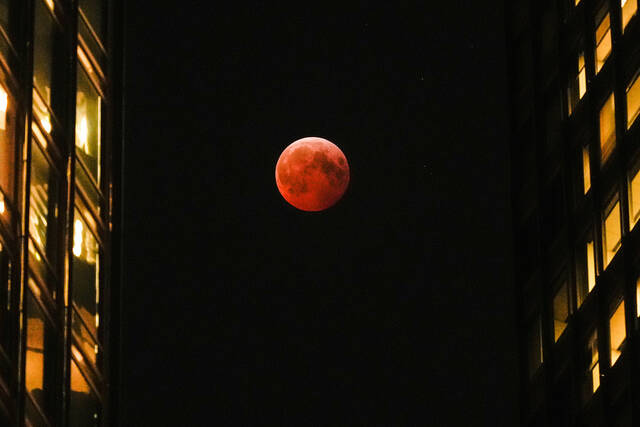WASHINGTON — U.S. military leaders Thursday threatened a retaliatory strike against Iranian-backed Shia militia in Iraq, saying they know who launched the rockets in Iraq that killed and wounded U.S. and coalition troops and the attackers will be held accountable.
Defense Secretary Mark Esper told reporters at the Pentagon that President Trump on Wednesday night gave him the authority to do what he needs to do. The rapidly unfolding events signaled a renewed spike in tensions with Tehran and its proxy groups in Iraq, just two months after Iran carried out a massive ballistic missile attack against American troops at a base in Iraq.
“We’re going to take this one step at a time, but we’ve got to hold the perpetrators accountable,” Esper said. “You don’t get to shoot at our bases and kill and wound Americans and get away with it.”
At the White House, Trump said the attackers are a rebel group that “mostly likely looked like it could be backed by Iran. And we’ll see what the response is.” And Army Gen. Mark Milley, chairman of the Joint Chiefs of Staff, told Pentagon reporters the U.S. knows “with a high degree of certainty” who launched the attack.
Esper and Milley declined to provide any more information about any impending U.S. retaliation for the attack at Camp Taji north of Baghdad. But Esper said all options are on the table. On Capitol Hill, Marine Gen. Frank McKenzie, the top U.S. commander for the Middle East, told senators that the deaths of U.S. and coalition troops is a “red line” for the U.S., but said he doesn’t think Iran has “a good understanding of where our red line is.”
Asked if any counterattack could include a strike inside Iran, Esper said, “We are focused on the group that we believe perpetrated this in Iraq.”
Two U.S. troops and one British service member were killed and 14 other personnel were wounded when 18 rockets hit the base on Wednesday. The U.S. military said the 107 mm Katyusha rockets were fired from a truck launcher that was found by Iraqi security forces near the base after the attack.
U.S. officials have not publicly said what group they believe launched the rocket attack, but Kataib Hezbollah, an Iranian-backed Shia militia group, is likely.
Kataib Hezbollah was responsible for a late December rocket attack on a military base in Kirkuk that killed a U.S. contractor, prompting American military strikes in response.
That in turn led to protests at the U.S. Embassy in Baghdad. They were followed Jan. 3 by a U.S. airstrike that killed Iran’s most powerful military officer, Gen. Qassem Soleimani, and Abu Mahdi al-Muhandis, a leader of the Iran-backed militias in Iraq, of which Kataib Hezbollah is a member. In response to the Soleimani killing, Iran launched a massive ballistic missile attack on Jan. 8, at al-Asad air base in Iraq, that resulted in traumatic brain injuries to more than 100 American troops.
McKenzie told the Senate Armed Services Committee on Thursday morning that the killing of Soleimani and the increase in U.S. troops and assets in the region has made clear to Iran that the U.S. will defend its interests there. He said the U.S. has re-established a level of deterrence for state-on-state attacks by Iran.
But, he said, “What has not been changed is their continuing desire to operate through their proxies indirectly again us. That is a far more difficult area to deter.”
On Thursday, Esper and Milley said they spoke with their British counterparts about the attack, but declined to provide details.
Asked why none of the rockets was intercepted, Milley said there are no systems on the base capable of defending against that type of attack.
He also said the 14 injured personnel were a mix of U.S. and allied troops as well as contractors, and that they will also be monitored for possible traumatic brain injury in the wake of the blasts.


